Seeking some fun and interesting facts about Greece? The country and people are some of the most gorgeous in Europe and they’ve been drawing in tourists for decades. The Greek islands are filled with thousands of beautiful beaches, amazing food, and rich history.
Does this sound like something you want to learn about? Here we touch on a few amazing Greek fun facts that everyone should know!
Amazing Fun Facts About Greece!
1.) Western Culture Originates in Greece

Basically, everything that makes Western cultures tick comes from Greece. We’re talking about the place where democracy was born, the origin of Western philosophy and political science, actual science and mathematics, people writing about history, the Olympic Games, and even drama and dramatic principles. Thank you, Ancient Greece and Hellenic culture, thank you.
2.) Ancient Greeks made that culture even more cultured
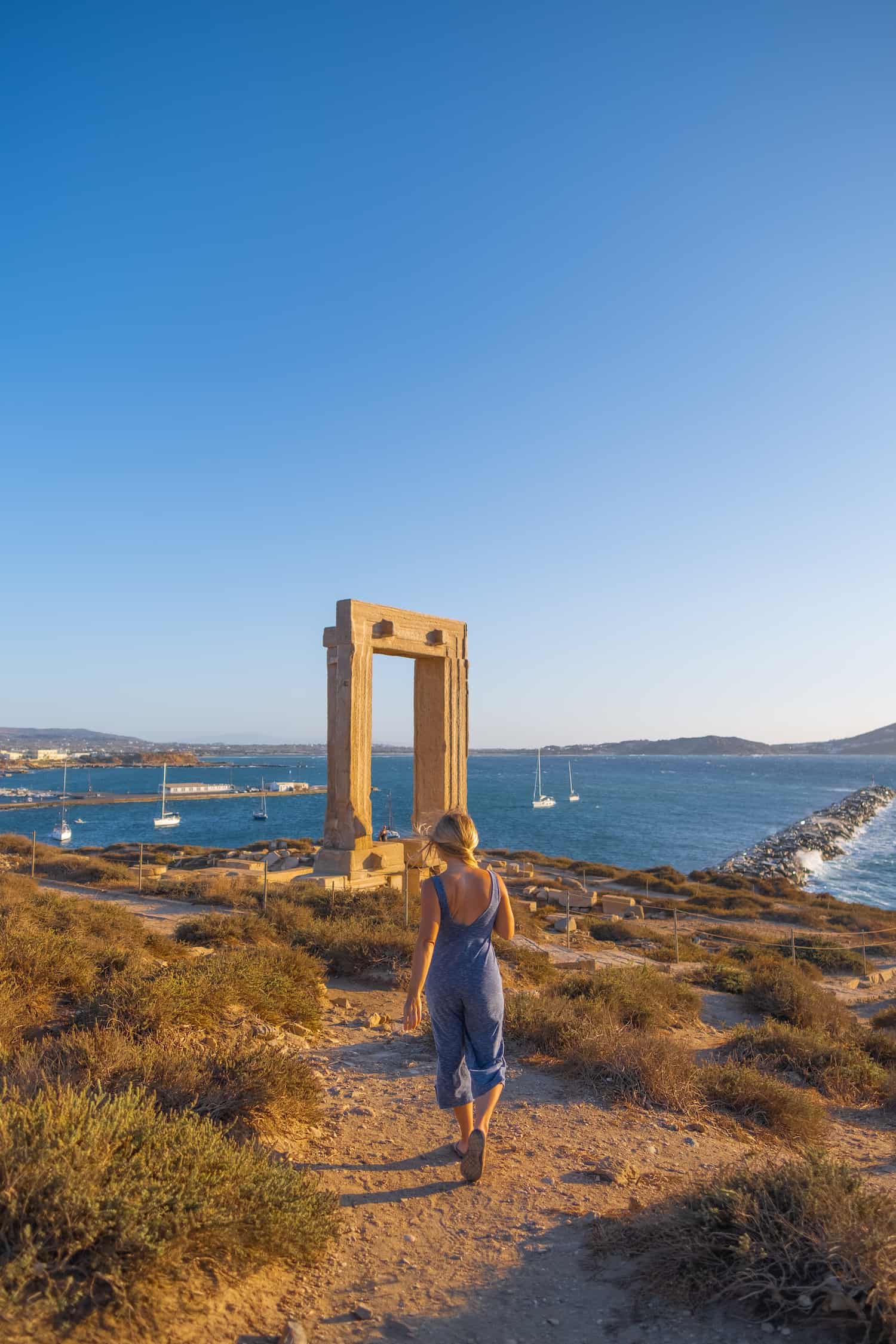
With philosophy being pioneered in Greece (hello Pythagoras, Plato, Socrates, Aristotle), everything came from here. Philosophy is literally a Greek word anyway, meaning “lover of wisdom.”
Everything branched from her – dramatic forms, the idea of aesthetics, different styles of poetry. All of this strongly influenced the way our ancestors thought about the world.
3.) Philosophy is Super Old

At a time when a lot of cultures in Europe weren’t even writing stuff down (they couldn’t), Ancient Greece was churning out philosophers left, right, and center. As early as the 6th century BC, there were philosophers who wondered about the world and how it worked. They were called Presocratics because, well, they came before Socrates, who was the granddaddy.
4.) Greeks Take Their Weekends Seriously
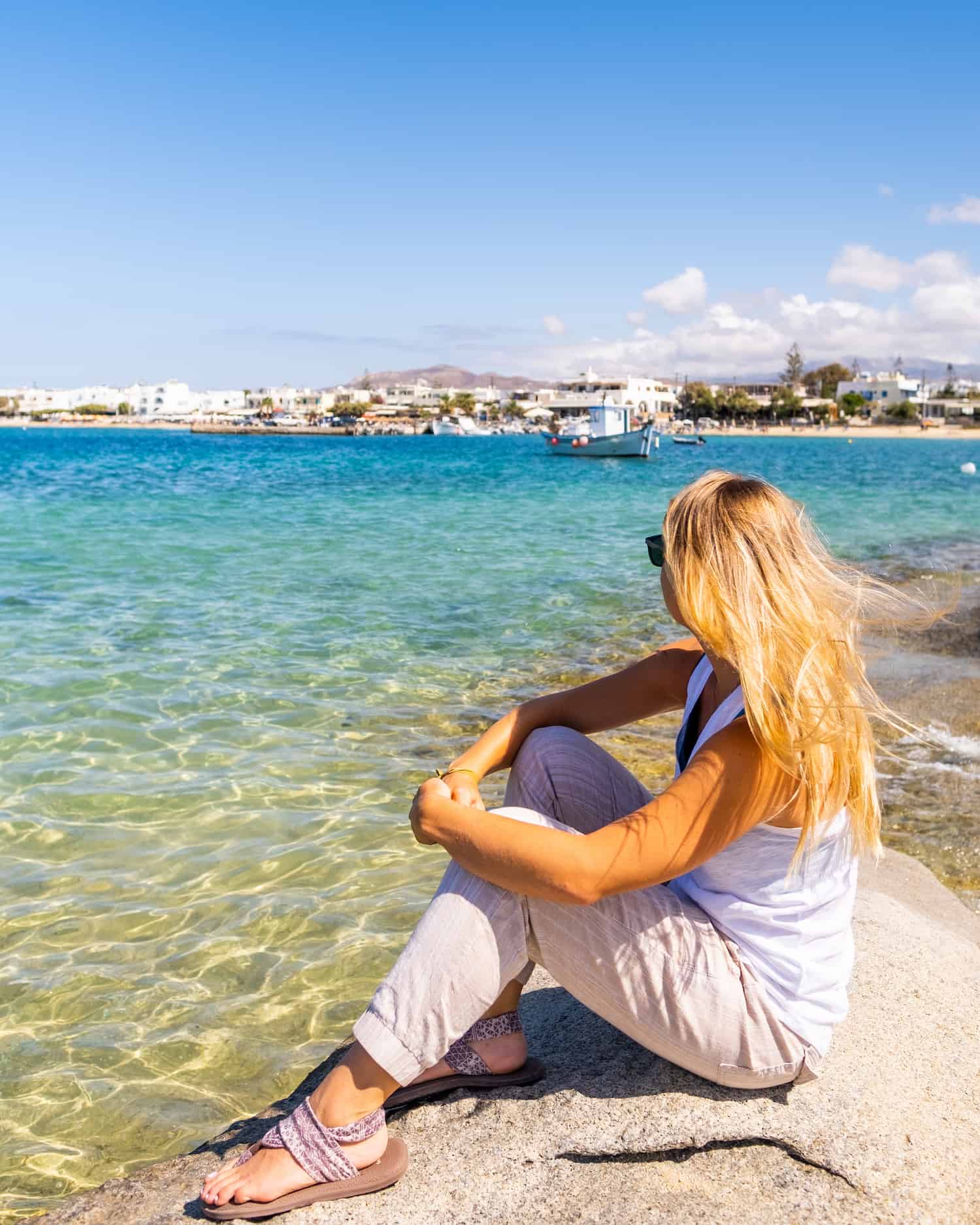
One of those fun facts about Greece I love! Greece is an inspiring destination not just for foreigners, but to Greeks as well. It’s not just that European thing of shops and businesses being shut on a Sunday out of that little thing called tradition.
Sundays are, literally by law, public holidays, and have been since the late 1970s. Saturdays are also not for work. If a Greek has to work on Sunday, they get paid a regular salary plus 75% of their salary.
5.) Neolithic settlements in Greece are Europe’s oldest
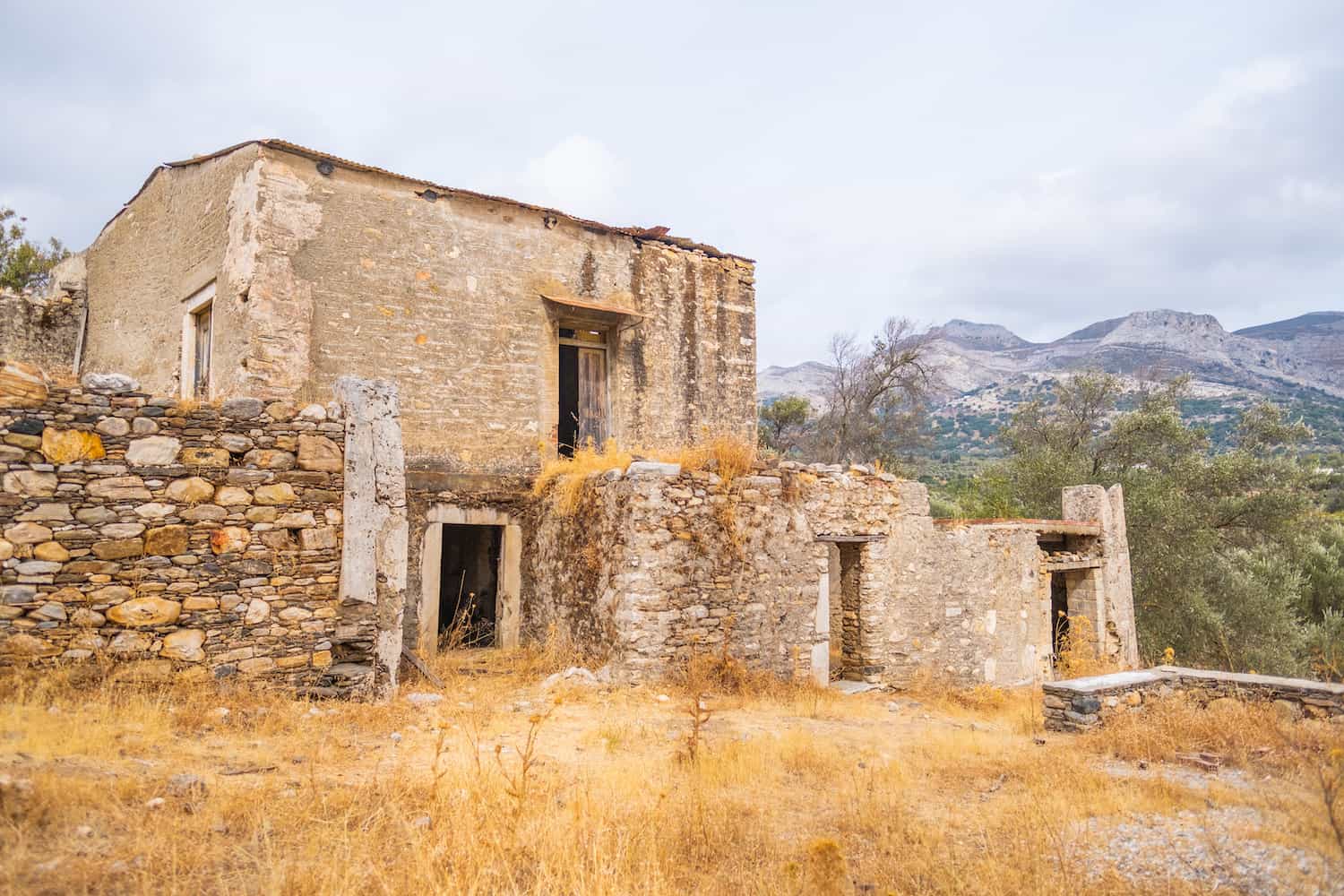
There is archaeological evidence of people living in Greece from around 7000 BC, much earlier than anywhere in Europe by hundreds of years. The reason? The location. Greece benefited from its position as a buffer zone between the rest of Europe and the Middle East, and it’s thought this is where agriculture spread from.
6.) Greece boasts evidence of all three stone ages

Hang on a sec, there were three stone ages? There’s the first stone age, Paleolithic (something like 270,000 BC), then Mesolithic, and then the much more advanced Neolithic period. Actually, archaeological evidence for all three has been found in the same place – Franchthi Cave, in the Greek province of Macedonia. Unreal.
7.) The Roman Republic annexed Greece in 200 BC
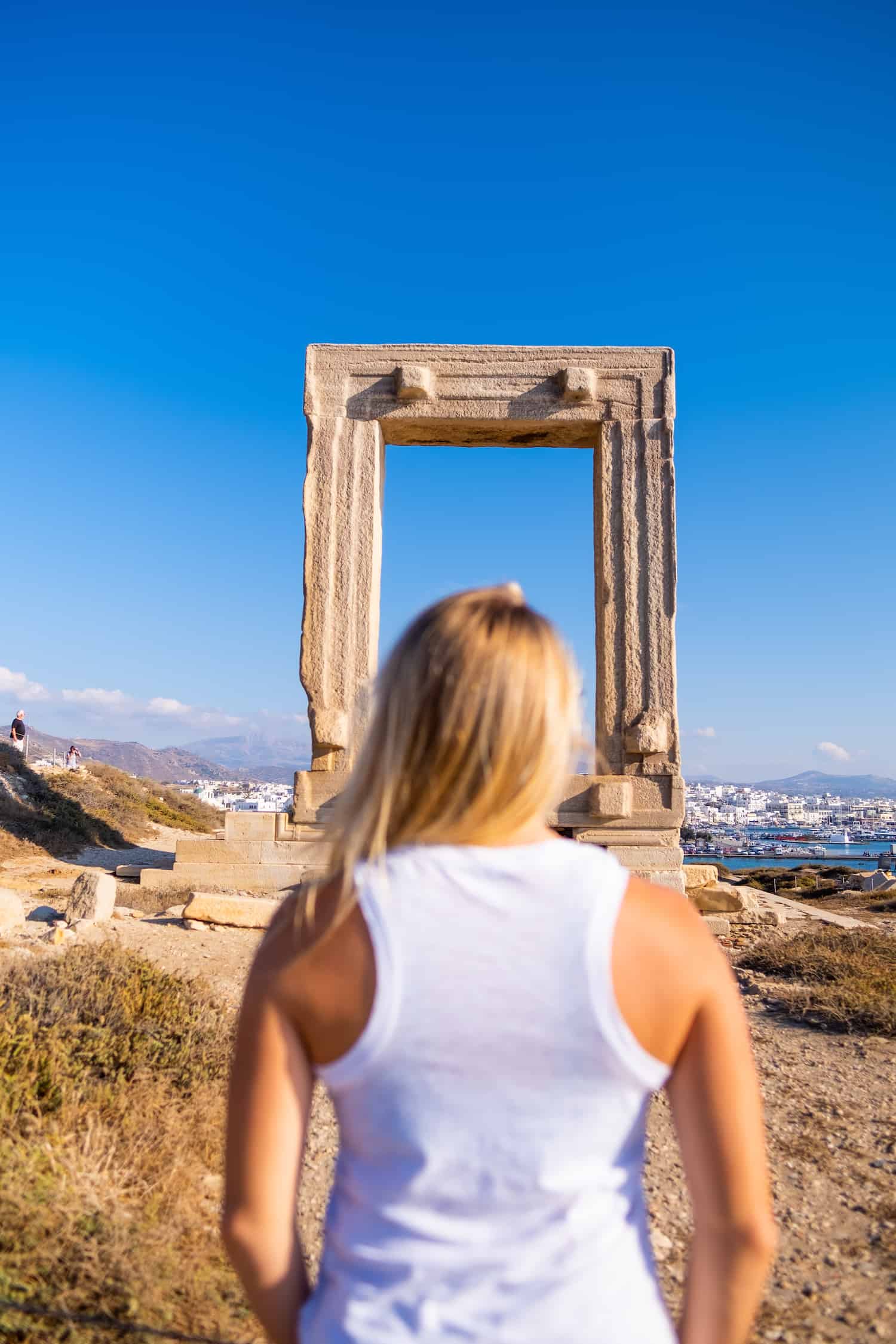
The Ancient Greek world had many colonies in Italy, and inspired Romans and their culture (even their gods); in fact, high-class Romans spoke Greek, recited Greek poetry, and studied Greek philosophy.
They even took part in the Olympics. But from around 200 BC, the tables turned, and the student became the master, so to speak. They still love Greece, though.
8.) There’s national service in Greece

I’m not sure if this is one of the most fun facts about Greece, but it sure is interesting. That’s right, Greek males above the age of 18 have to serve in the army. The military service lasts for at least nine months.
After that, you’re on the reserve list in case something bad happens. There is a bit of beef with Turkey, but that’s (mostly) in the past. If mobilized, the conscripted Greek army alone would number just under 200,000.
9.) Greece comes from the Latin name for the country

A linguistic fun facts about Greece now, as we discover that what we call Greece comes from what the Romans called it – Graecia. This, in turn, comes from the Ancient Greek word Graikos.
It may mean “old man,” it may mean “gift of honor,” it may refer to one specific ancient tribe of Greece – it’s not certain. But what’s for sure is that the name for Greece today is Hellas. The official name that it goes by is the Hellenic Republic.
10. A lot of people in Greece are Greek

You may think somewhere like Japan is a super homogenous society, but hold your horses: like the approximate percentage of ethnic Japanese in Japan, around 98% of the Greek population is, well, ethnically Greek. The largest minority are Turkish people.
11. Huge walls used to connect Athens to the sea

Like something from Game of Thrones, these were called the Long Walls, and they were constructed sometime in the mid-500s (BC, that is). They stretched from Athens all the way to the walled city of Piraeus on the coast, in a sort of cartoon bone shape.
The purpose of the walls would be to stop any attempt of a siege that was attempted by land and land only. The Romans destroyed them years later (boo).
12. There’s a traditional Greek cake that’s baked with a coin inside

It’s called vasilopita, there’s a silver- or gold-plated coin inside, and it’s a New Year tradition. At midnight, the cake is cut. The pieces are distributed. You tuck into the cake. If you get the piece with the coin, you’re the winner! Well, you get good luck for the coming year, anyway. Bad luck if no one gets the coin…
13. You have to vote in Greece

There is no abstaining; there is no forgetting; there is no, “I’m not registered to vote.” It’s the law in Greece for every Greek citizen aged 18 and over to vote. You literally have no choice in having a choice of voting. But… it’s not enforced that much. Turnout is still pretty high, though (70-80%).
14. Building the Acropolis was a social project
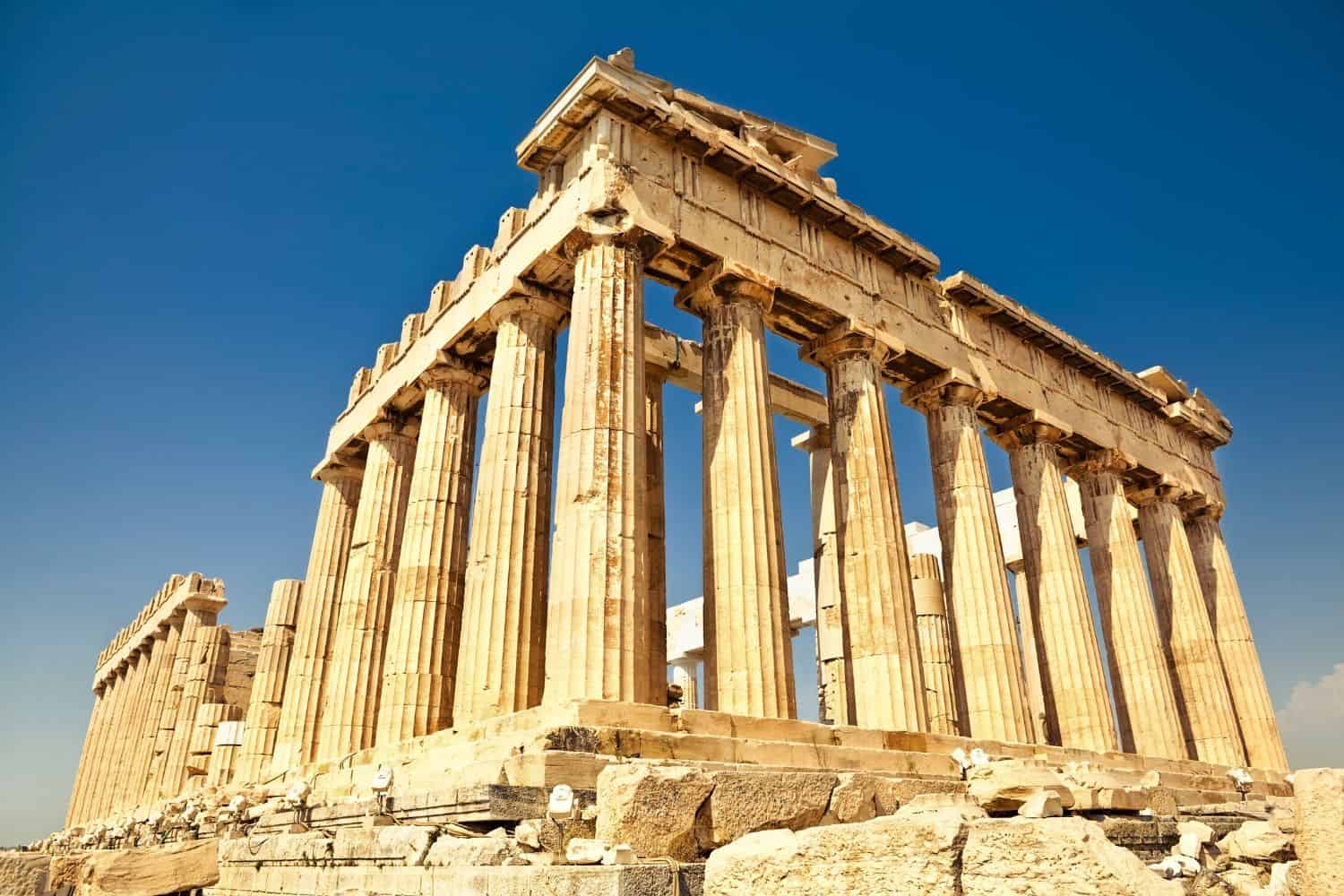
It’s the vast and ancient temple complex that was at the core of Ancient Athens. But it’s a little known fact about Greece that it was (possibly) one of the first social projects ever. Maybe.
But it was, sort of like Roosevelt’s New Deal, a way to get everyone employed. In fact, about half the population was on the payroll for building the Acropolis in 525 BC, which we think is pretty cool.
15. Greek has had a mad influence on the English language
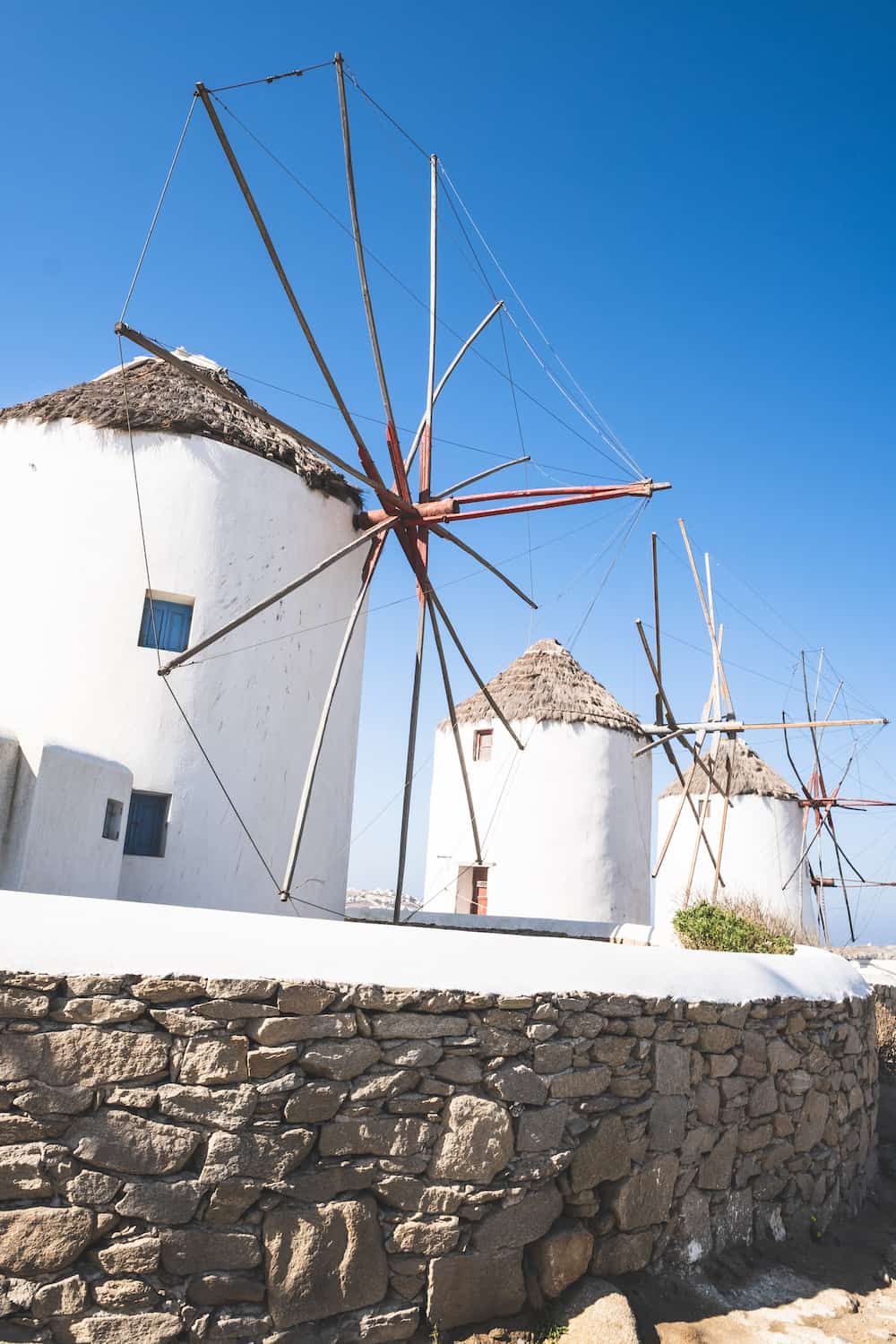
Athlete. Marathon. Melody. Psychology. Oxygen. Monk. Butter. Thesaurus. Drama. Icon. Helicopter. Genesis. Apocalypse. Daffodil. Paper. Drum. Eureka! Seriously, we could go on forever and ever.
Basically, they’re either words that came from Greece via other languages into English; came directly from Greece; or are new words formed from Greek suffixes and words to form cool words like helicopter. You’ll find more Greek diphthongs (“ae,” “oe,” etc.) in British English than American English.
16. In Greece, you get to celebrate your name day

You don’t just get a birthday in Greece; you get a name day too; how about that for one of the best fun facts about Greece? Basically, every day of the year is dedicated to at least one saint (there are a ton) in the Greek Orthodox tradition.
So all the Giorgos out there get to enjoy Saint George’s Day on April 23, for example. If somehow your name doesn’t have a corresponding day, you get to celebrate on All Saints’ Day. One of our favorite interesting facts about Greece.
17. Greece has a whole lot of beaches
 On Sarakiniko Beach in Milos
On Sarakiniko Beach in Milos
With innumerable Greek islands (well, thousands actually) and a crazy jagged shoreline, Greece actually gets the accolade of being able to boast the world’s 11th-longest coastline. Awesome. With all this coast comes… you guessed it, beaches. And lots of them.
18. It’s not only beaches… a ton of mountains make up Greece too

It might be well known for its summertime beaches, but man, Greece really has a lot of mountains too. In fact, a massive 80% of Greece is mountainous, or at least hilly. This makes it one of the least flat countries in Europe. Mount Olympus is the tallest mountain, towering at 9.573 feet.
19. Mount Olympus is a pretty spiritual place

Ancient Greek tradition is that Mount Olympus is the abode of the gods. Who lived there? The 12 Olympian gods, of course. They’re the main, sorta “classic” Ancient Greek deities – you know, Zeus, Poseidon, Aphrodite, Hermes, and the rest. The Olympics were held in their honor. After the pagan religion fell out of favor, Christianity found the place holy, too.
20. Greece gets a lot of tourists

Actually, how’s this for a fact about Greece: more tourists visit the country each year than its entire population. In 2016, there were 28 million visitors to Greece, versus the actual Greek population of 10.7 million.
That’s more than double. Insane. Many of them flock to the island of Santorini and Mykonos, but of course there are other popular islands like Rhodes, Crete, and so many more!
21. The Greek government doesn’t care what religion its citizens are
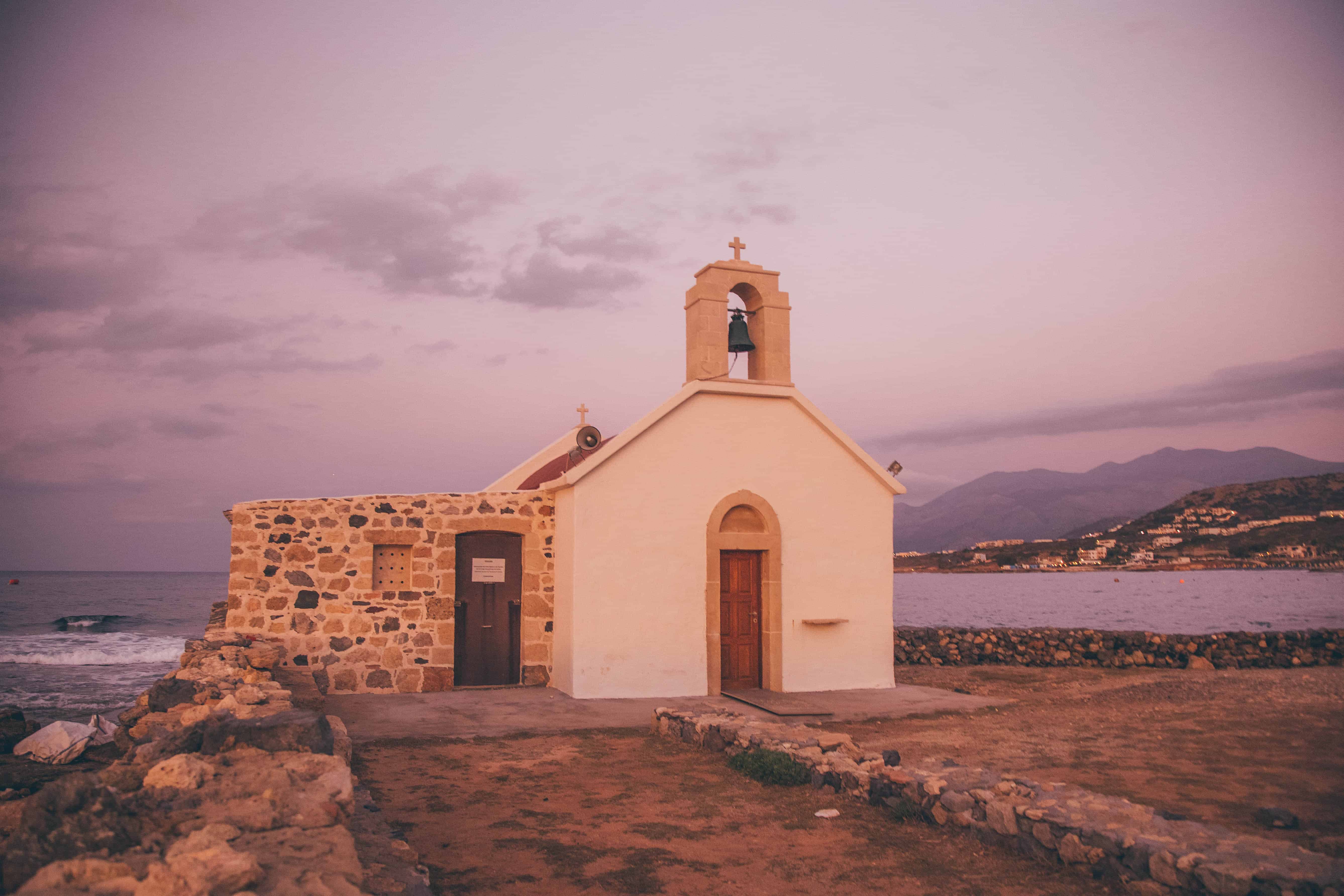
Either that, or nobody’s keeping count. But really, there are apparently no official national statistics for religious groups, nor do censuses actually even quiz citizens about what religion you may or may not be. The good ol’ US State Department estimates that 97% of Greeks are Greek Orthodox.
22. Greeks love olives and have for years

Like all good Mediterranean countries worth their salt, olive oil is a big part of Greece. It’s even mentioned in Greek mythology, where even the gods decided among themselves that it was more valuable than water.
It turns out they may have just been right. That value isn’t only in terms of Greek cuisine, but for the country’s economy, too; it produces the second-largest amount of olive oil in the world.
23. Doors, windows, and roofs in Greece are often painted blue

You’ll find this tradition adhered to most of all in the Cyclades, an island group in the Aegean. But what does it all mean? Well, having your window sills, doors, window shutters, and basically everything but the walls (which are white) painted blue is supposed to keep evil away.
It’s an ancient belief that’s even followed in some Indian cities. The color is called kyanos, and is where the name for the color “cyan” comes from. That, and “cyanide.”
24. Greek food has a tradition that goes back over 4000 years

Greek cuisine is delicious, it’s even where saganaki comes from! It’s probably so delicious because Greece basically lies between Europe and Asia, so soaked up influences from all over the place. Interacting with various cultures over the years, things happened, and hey presto – Greek cuisine.
There’s feta cheese (likely from Byzantium), loukaniko (a dried pork sausage linked to the Roman era), and pasteli (a candy bar straight outta Ancient Greece), to name a mere portion of all the tasty goodness.
25. Greece was ruled by the Ottoman Empire for centuries
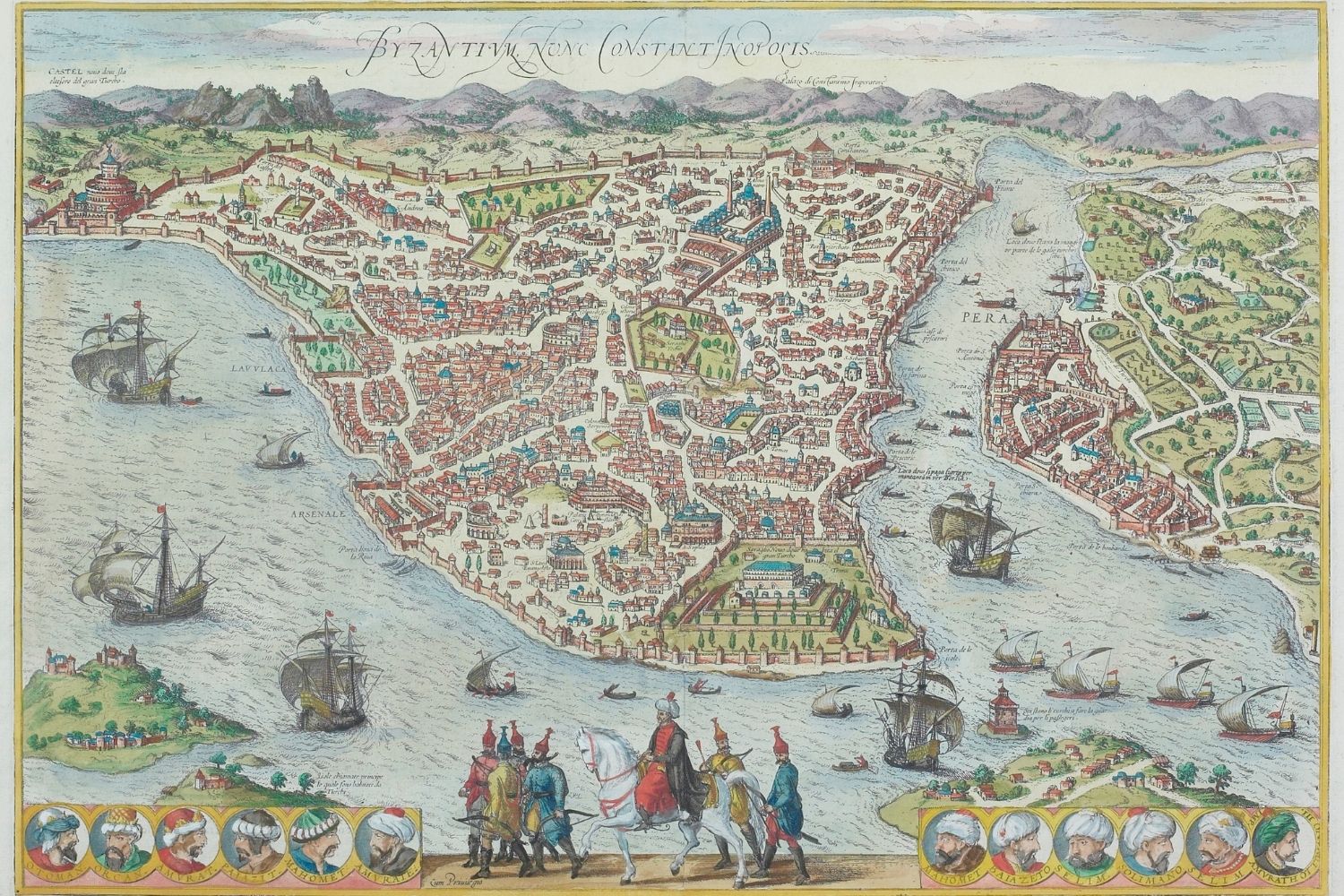
You may think of Greece as this place that has existed without interruption since the Golden Age of Athens (minus the Romans’ interruption), but that’s not the case. In fact, the Turkey-based Ottoman Empire conquered Greece – and most of the Balkan countries – from the mid-15th century until a fierce war of independence in 1821.
26. In Greece, lunch is the most important meal of the day

Yes, that’s right, your mom might have led you to believe that the most important meal of the day is breakfast, but think again. The Greeks love their lunches so much that they go all out for them. This big meal consists of meats, breads, and salads, and is eaten over the course of a few hours.
Called mesomeriano, this feast will more than likely put your midday sandwich to shame. At lunchtime, shops, schools, and workplaces even shut so people can head home for their much-needed food.
27. Byron loved Greece so much that he joined the Greek War of Independence

Lord Byron, the iconic British poet, got so swept up by the plight of the Greeks and their fight against the Turks that he traveled to Greece to help out. Byron even sold his English estate and used the money to help fight the cause, but sadly, he didn’t quite get there. Before heading into battle with the Ottomans, Byron died of a fever in Greece in 1824 at the age of 36. Greeks love him to this day.
28. Greece is the place to live at home
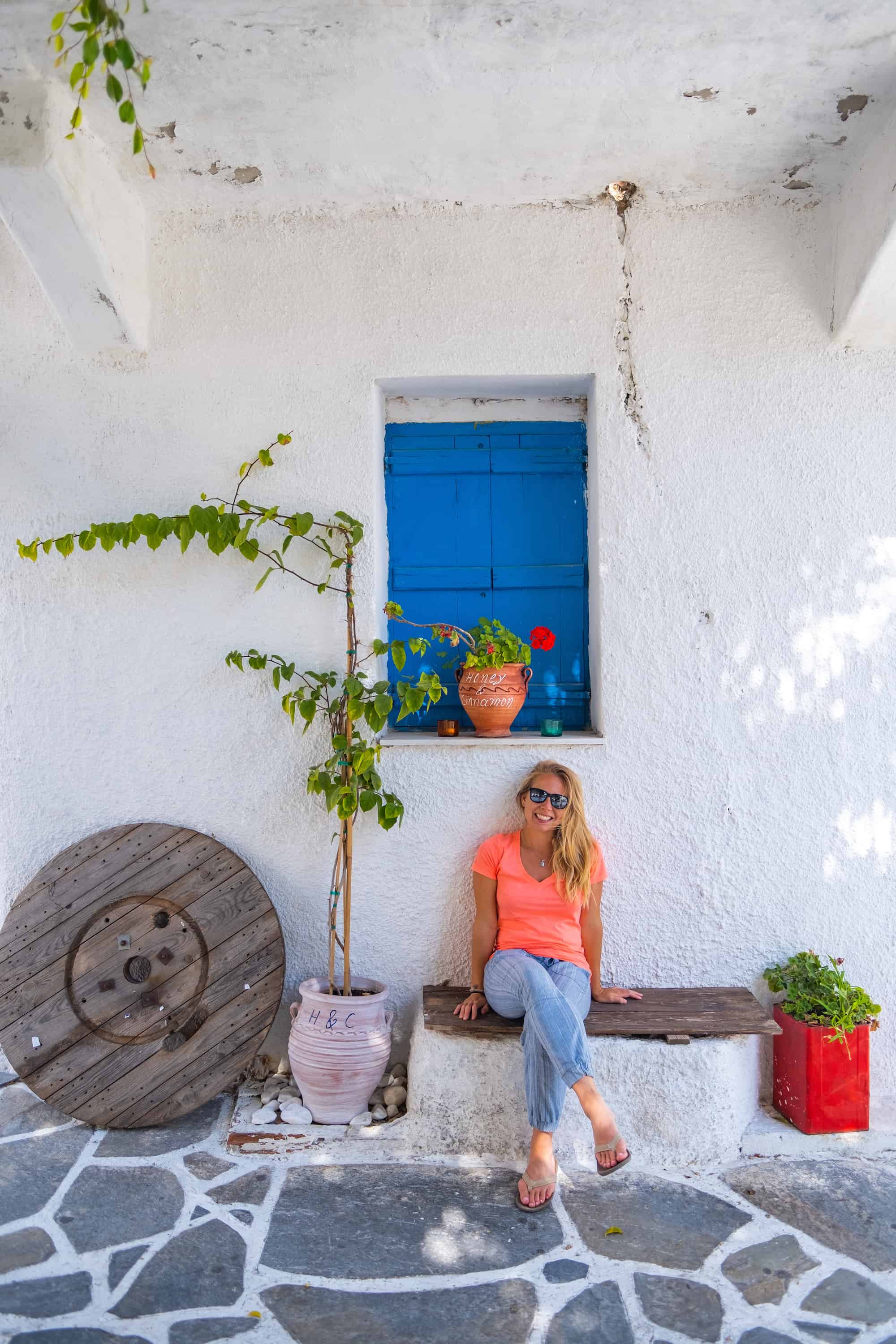
In the States, or other Western countries, living at home past a certain age is, well, you know, not looked upon with great kindness, shall we say. “Basement-dweller” springs to mind. This fact about Greece, however, suggests that it’s not the case in the Hellenic Republic.
Most Greeks (64%) between 18-34 years of age live with their parents. It’s great. And the upside is that there are barely any retirement homes, since the roles get reversed as parents grow old and move in with their children.
29. Greeks protect themselves against evil forces

It’s not just painting doors and window frames blue to keep away evil – there are actually quite a few ways in which the Greeks deal with evil influences – or as it is more commonly known, the EVIL EYE! One of the best ways is via the nazar. This looks like an eye and is, like a personal gargoyle, designed to keep evil at bay. You’ll find it everywhere.
30. Smashing plates is still a custom

This is one of my favorite fun facts about Greece. It involves, yes, smashing plates. If you didn’t already know, Greeks have a penchant for smashing plates at celebrations. It’s a stereotypical thing that doesn’t actually happen as much as you’d think, but it does still happen – at weddings, especially.
Two theories float around as to why: 1) “killing” plates in a kind of ritual to get through feelings of loss and mourning at funerals; 2) breaking plates suggests you’ve got more where those came from, i.e., a display of wealth.
Quick Greek Travel Tips

‘Hello’ and ‘Thank You’ in Greek: “Yasou” and “Efharisto”Currency: Euro – (EUR) – €Visa: Schengen visa. Which is 90 days in the European Union out of 180. Many nationalities are granted this on arrival for free. Check with your embassy to see if that is you.Weather: The weather in Greece is a Mediterranean climate. This means winters are mild and rainy, while summers are warm and dry with plenty of sunshine throughout the year.What to Pack: Warm weather clothes and a swimsuit, don’t forget a good pair of clothes to go and a jacket for cool nights. Read about what to wear in Greece.Rent a Car: Renting a car is the best way to get around the Greek islands. See our full car rental guide here.
What to Pack for Greece?

Spending a summer on one of the many Greek islands? Lucky you. You may be wondering just what to pack for Greece. The islands are beautiful, swarming with history, and are populated with some of the friendliest people in the world.
READ MORE GREECE TRAVEL TIPS
I hope you enjoyed our favorite facts about Greece! Hopefully you found it useful. Here are a few relevant articles for more travel around Greece!
How Much Does a Trip to Greece Cost?The Best Things to do in CorfuThe Best Things to do in NaxosThe Best Things to do in ParosThe Best Things to do in Milos
Read more: theworldpursuit.com
